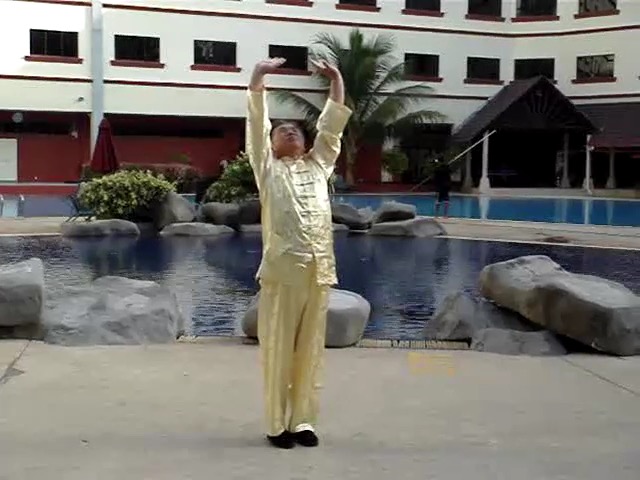LEARNING FROM BOOKS, AND DIFFERENCE BETWEEN EASTERN AND WESTERN CULUTRES

Guan Yin Bodhisattva. Difference between Eastern and Western Cultures.
Question
From your book and web-page, it seems as though your knowledge of Qigong is pretty deep. I've read quite a bit about Qigong, but my knowledge tends to be more intellectual than experiential.
And since I have never had a Qigong teacher and tend to have a hard time picking a particular one because of all the types I've read about, I just recently started practicing one that I feel seems to be the core of many of the Chinese arts -- zhang zhuang.
— Jeff, USA
Answer
I do not mean to suggest you are discourteous because I know you are not, but your expression "it seems as though your knowledge of Qigong is pretty deep" provides a good opportunity for many people in the West to better understand the cultural difference between the East and the West, and therefore they will be in a better position to benefit from both Eastern masters and Eastern arts like qigong and kungfu.
In Western culture, your expression is a compliment to me -- and that is how I take it. But in Eastern culture, it is an insult, compounded by the double use of "it seems" and "as though", implying that I am not a real master; I only appear to be one.
Moreover, you are in no position to make the judgement, as you have not even practiced qigong from a teacher. Had you said the same thing to a kungfu master in ancient China, one of his students would step out and, saying "I'll teach you some kungfu", give you a punch.
You should have more respect for the art of qigong. If you think you can be proficient in the art by merely learning from books, then there is nothing great about the art nor was the great respect paid to qigong masters in the past justified. I don't think you would do the same had you wanted to be proficient in surgery. Yet, qigong is much more extensive and deeper than surgery. Real qigong masters, not qigong dance instructors, have helped patients recover when surgery failed.
That, of course, does not mean books are useless in qigong or surgery. Qigong, like the art of surgery (rather than its science), is experiential; how good one is as a qigong master or a surgeon depends on how well he can perform, not how much he has learnt from books. Unless you already had some practical experience in qigong or have a living teacher to guide you, learning from books will probably make you into a qigong dancer instead of a qigong practitioner.
Note
: Jeff gracefully and promptly replied:
I am sorry that I offended you in that I had no intentions of doing so and tried to show you the utmost respect in my letter as best I could. I understand your point and apologize.
Also, I'm sorry that you thought I was disrespectful of qigong as that also was definitely not my intention. I have great respect for it as it is one of my main interests.

Chi Kung
LINKS
Reproduced from Questions 3 in Selection of Questions and Answers — December 1998 Part 1
Please e-mail your questions to Grandmaster Wong Kiew Kit stating your name, country and this web page for reference. E-mails without these particulars may not be answered.
